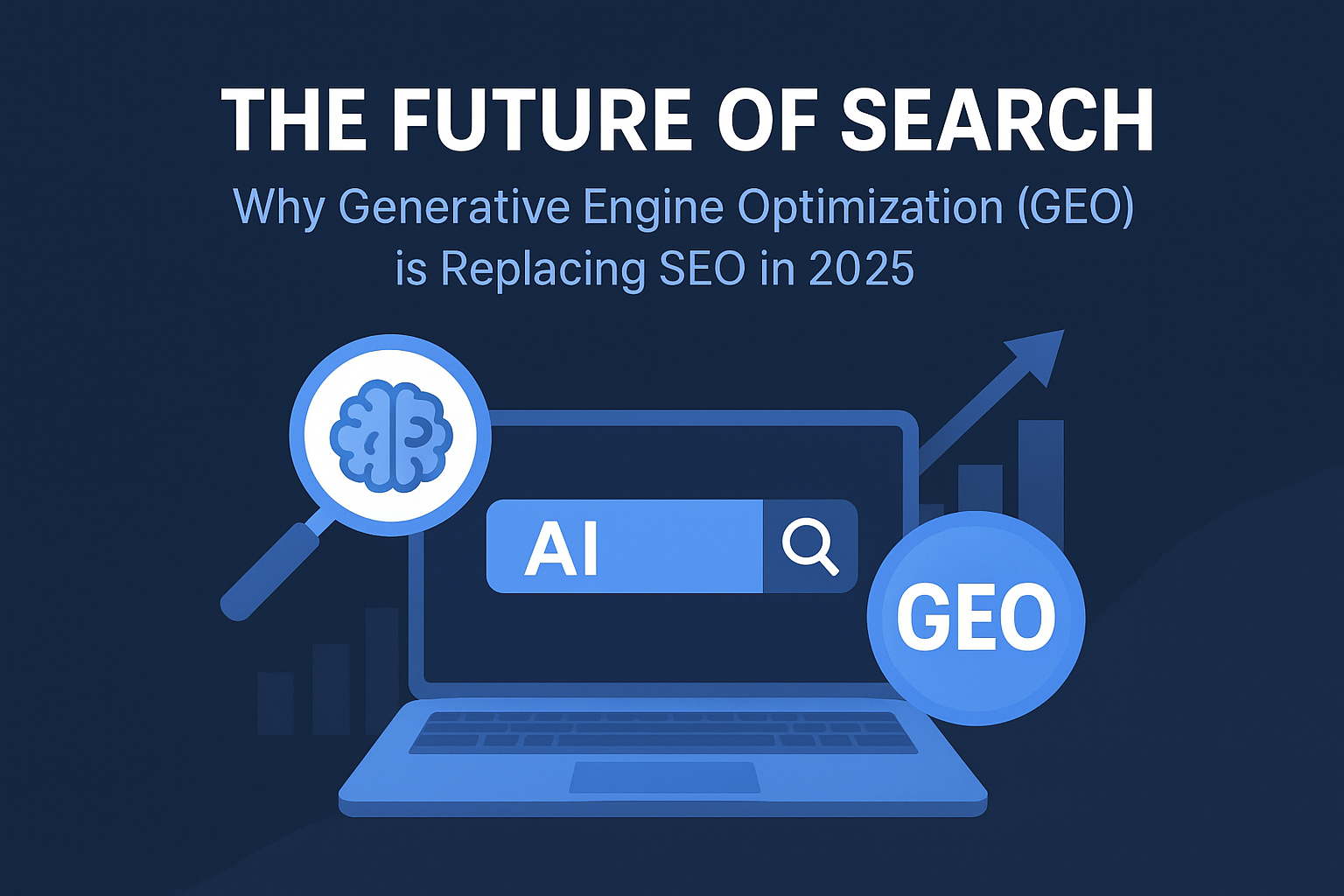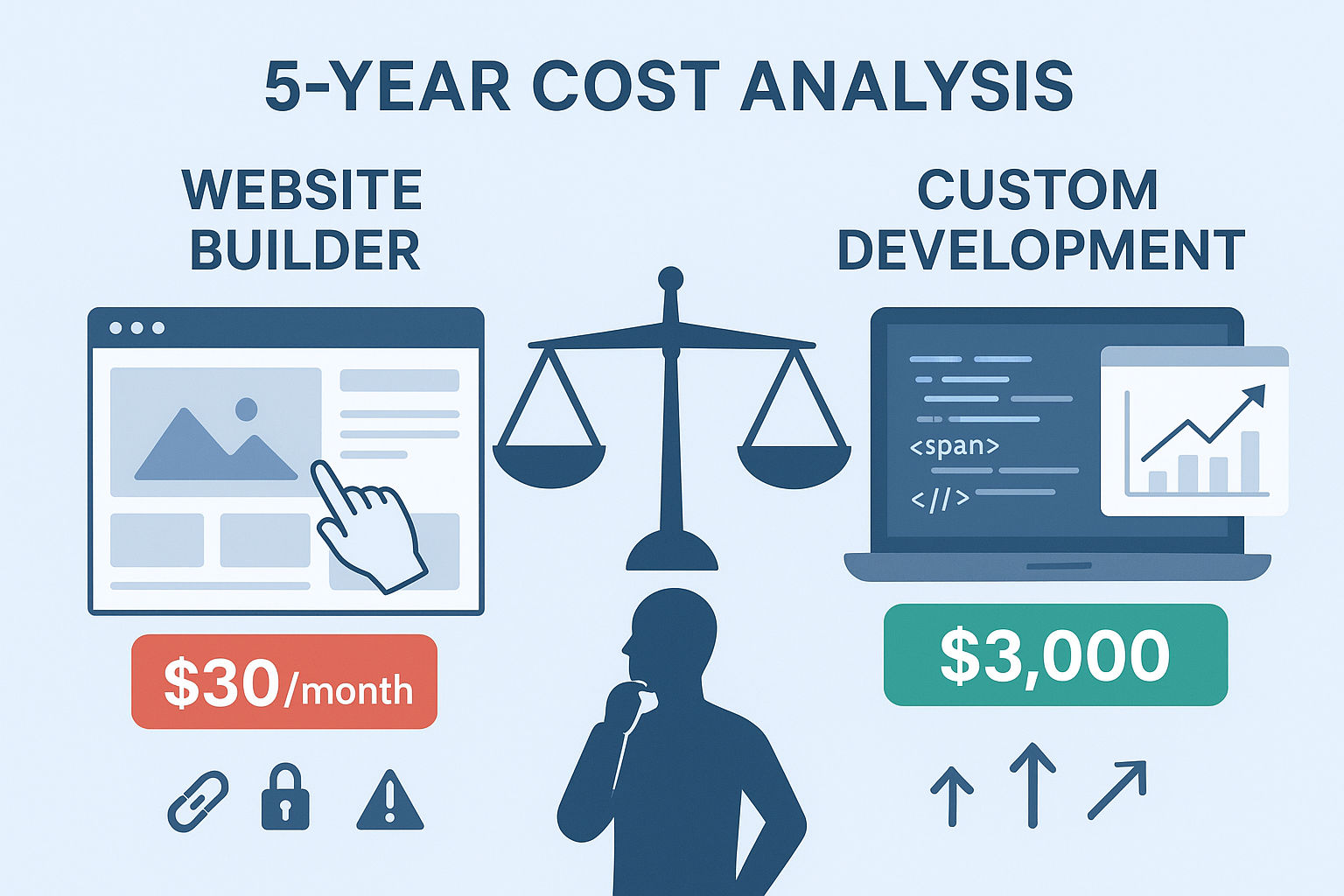The Death of Search as We Know It
For over two decades, SEO was the default playbook for visibility online. But in 2025, search has been shifting away from traditional browsers toward LLM platforms. With Apple's announcement that AI-native search engines like Perplexity and Claude will be built into Safari, Google's distribution chokehold is in question. The foundation of the $80 billion+ SEO market just cracked.
As web development professionals, we've watched this transformation accelerate rapidly. Traditional search—built on links, keywords, and page rankings—is giving way to something entirely different: Generative Engine Optimization (GEO).
The question for every business owner is simple: Will AI remember your brand?
Understanding the Fundamental Shift
Traditional SEO vs. GEO: The Core Difference
Traditional SEO was built on links. GEO is built on language.
In the SEO era, visibility meant ranking high on a results page. Today, with LLMs like GPT-4o, Gemini, and Claude acting as the interface for how people find information, visibility means showing up directly in the answer itself, rather than ranking high on the results page.
This isn't just a minor algorithm update—it's a complete paradigm shift that changes everything about how customers discover your business.
How Search Behavior is Changing
The data reveals dramatic shifts in how people search:
- Query length: Queries are longer (23 words, on average, vs. 4)
- Session depth: Sessions are deeper (averaging 6 minutes)
- Context awareness: LLMs remember, reason, and respond with personalized, multi-source synthesis
Instead of typing "web design company," users now ask: "What should I look for when choosing a web development agency for my e-commerce startup that needs both technical expertise and understanding of conversion optimization?"
What This Means for Your Business Website
Content That Works in the GEO Era
Traditional SEO rewards precision and repetition; generative engines prioritize content that is well-organized, easy to parse, and dense with meaning (not just keywords). Phrases like "in summary" or bullet-point formatting help LLMs extract and reproduce content effectively.
Actionable strategies for your content:
- Structure for AI consumption: Use clear headings, bullet points, and summary sections
- Depth over breadth: Create comprehensive resources that answer complete questions
- Natural language: Write conversationally, as if answering a specific person's question
- Source-worthy information: Provide data, examples, and insights that AI models want to reference
The New Success Metric: Reference Rates
It's no longer just about click-through rates, it's about reference rates: how often your brand or content is cited or used as a source in model-generated answers.
This fundamentally changes how we measure marketing success. The goal isn't just traffic—it's becoming a trusted source that AI models automatically reference when answering questions in your industry.
Real-World GEO Success Stories
The Power of AI Referrals
ChatGPT now refers 10% of new Vercel signups, demonstrating the massive business impact of AI-driven referrals. Companies like Canada Goose are using GEO tools to understand how AI models reference their brand—not just for product features, but for overall brand recognition and unaided awareness.
This represents a new competitive advantage: being encoded into the AI layer.
Technical Implementation: Preparing Your Website for GEO
Essential Technical Optimizations
While the metrics have changed, technical excellence remains crucial:
- Structured Data: Schema markup becomes even more important for AI understanding
- Site Speed: Core Web Vitals remain crucial ranking factors and affect AI crawling efficiency
- Mobile-First Design: AI searches often happen on mobile devices with voice queries
- Content Architecture: Organize information logically with clear hierarchies
GEO-Optimized Content Framework
Traditional SEO content structure:
- Keyword-focused headlines
- Backlink-worthy topics
- Search volume targeting
GEO-optimized content structure:
- Question-answering format
- Comprehensive, well-sourced information
- Easy-to-extract key points
- Natural conversation flow
The Business Model Shift
Understanding the New Economics
The LLM market is fundamentally different from the traditional search market in terms of business model and incentives. Classic search engines like Google monetized user traffic through ads; users paid with their data and attention. In contrast, most LLMs are paywalled, subscription-driven services.
This creates different incentives for content discovery and referencing, potentially making quality and utility more important than advertising spend.
Tools and Measurement for GEO
Emerging GEO Analytics
New platforms like Profound, Goodie, and Daydream enable brands to analyze how they appear in AI-generated responses, track sentiment across model outputs, and understand which publishers are shaping model behavior.
Traditional SEO tools are adapting too:
- Ahrefs' Brand Radar now track brand mentions in AI Overviews
- Semrush also has a dedicated AI toolkit designed to help brands track perception across generative platforms
Key Metrics to Track
- Brand mention frequency in AI responses
- Sentiment analysis across different AI platforms
- Reference accuracy and context
- Competitive share of voice in AI-generated content
Preparing Your Business for the GEO Era
Immediate Action Steps
- Audit your current content for AI-friendliness
- Identify key questions your customers ask AI about your industry
- Create comprehensive resources that answer complete questions
- Monitor brand mentions across AI platforms
- Optimize for natural language queries
Long-Term Strategic Shifts
From keyword optimization to conversation optimization
From link building to source building
From page rankings to reference rankings
What This Means for Different Business Types
E-commerce Businesses
Focus on product information architecture and comparison content that AI can easily extract and reference.
Service Businesses
Create comprehensive guides and case studies that position you as the go-to expert AI models reference.
Local Businesses
Develop location-specific, question-answering content that helps AI provide accurate local recommendations.
The Future Landscape
Platform Fragmentation
AI-native search is becoming fragmented across platforms like Instagram, Amazon, and Siri, each powered by different models and user intents.
This means businesses need multi-platform strategies rather than Google-only approaches.
The Competitive Advantage
How you're encoded into the AI layer is the new competitive advantage. Companies that establish themselves as authoritative sources early will have significant advantages as these systems mature.
Conclusion: Adapting vs. Waiting
GEO is still in its experimental phase, much like the early days of SEO. With every major model update, we risk relearning (or unlearning) how to best interact with these systems.
However, the shift is already happening. Businesses that start optimizing for AI discovery now will be positioned advantageously as this new ecosystem matures.
The question isn't whether GEO will replace traditional SEO—it's whether your business will be ready when it does.
Ready to future-proof your website for the age of AI search? As web development experts who stay ahead of digital marketing trends, we help businesses optimize for both current search engines and emerging AI platforms. Contact us for a consultation on preparing your website for the GEO era.
Contact Silicon Valley Smart Solutions at admin@svss.pro for expert guidance on modernizing your digital presence.

